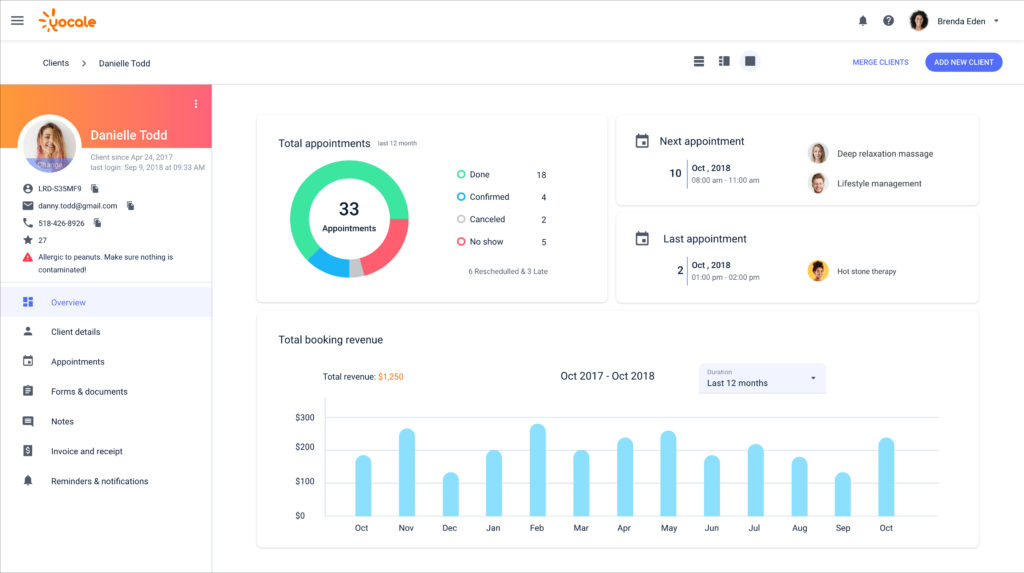We need more licensed therapists and counsellors today than ever before. Mental health issues have increased significantly in young adults over the last decade, partly due to the rise of digital media.
So congratulations for giving back and considering launching your own practice; We appreciate you. According to the American Psychological Association, 44.8% of psychologists work in private practice.
Opening a private practice carries many benefits, but also challenges. However, establishing your very own private practice is easy and an incredibly low investment. Initial costs for starting a practice in counseling in 20201 are about $6,300, and $457 a monthly as forecasted by the Private Practice Experts,
To position yourself up for success, the following guide is filled with free tips for “7 Steps to Starting a Canadian Counselling Private Practice Today”. Our purpose is to help you build a successful foundation for your therapeutical career.
Formulate a Business Plan
First and foremost, are you seeking a loan to fund your new venture? If yes, you’ll need a detailed business plan particularly one with a pro forma operating budget. Even if the funding comes from your own bank account (impressive), a business plan sets the foundation for financial planning and SMART goal setting.
Key items to include in your business plan:
-
How much revenues you’ll need annually to continue practicing.
-
How much revenues you’ll need annually to meet your goal earning.
-
Clarify financial goals. For instance, how much money to expand and hire other therapists.
-
Set short term goals (quarterly, first year) and long term goals such as up to five years
-
Your marketing strategy and budget.
-
A loan repayment plan, if you took a loan.
-
Funding opportunities.
In addition, here is your checklist for starting a private practice in counseling.
1. Get Certified/ Licensed
To become certified with the Canadian Counselling and Psychotherapy Association, you must graduate with a Master’s degree in counselling or a related field and meet the CCPA’s certification criteria.
When you become a registered or licensed professional, your services are compensated under extended health insurance providers. This makes counselling more accessible and affordable and provides the opportunity to obtain more clients.
Commence by applying to the largest health benefit providers. You should be able to locate and fill out applications on the insurer’s website.
Read more: Med spa laws by US states
2. Liability Insurance
As a therapists, your main responsibility is to improve the mental health of your patients, but what about taking care of your reputation and your practice? The most essential type of insurance that a counsellor should obtain is liability insurance. You can get coverage in minutes. Here is a good start.
3. Legal Considerations
Incorporate or not to Incorporate? Both business structures involve both advantages and disadvantages.
We do recommend incorporating your occupational therapy business as a separate entity. The biggest problem with a sole proprietorships is that it lacks personal liability protection. For instance, owners of a sole proprietorship are not protected from legal judgments or debt the business sustains.
In Canada, you can incorporate your business here in minutes. You also need to register for a GST/HST account.
Deciding on the legal consideration will help you name your practice. Choosing the right business name is vital (and challenging) as you should consider the future of your clinic. For instance, is it part of your business plan to expand and hire other therapists? If so, a name that entails personal characteristics is not sustainable.
If you don’t already have a name in mind, visit the How to Name a Business guide.
4. Office Location
By now, you have specialized education, training and interest to service a specific disorder or focus like “marriage counselling”. Points to consider about your target market:
-
Psychographics: Personality types and lifestyles.
-
Condition: For instance, “Parents of children with cognitive impairment”
-
Geographic Area: Who lives near “West Vancouver, BC”
-
Ability to Pay: “Who has extended health insurance”
Identifying your target audience helps you pick the best location. Here are some things to consider before committing to an office location:
-
Office Rent- Is the cost within your budget?
-
Accessibility – Is the location easily accessible by public transit? Is parking available?
-
Convenience for yourself – Is the location within your home vicinity?
-
High traffic area – Customer traffic can translate to walk-in patients.
-
Competition: Are their other practices near by?
-
Privacy and Amenities – Office should exude privacy and a trusting atmosphere. Access to amenities like restroom and coffee machine is vital.
Tip: Set your office up with stylish interior, soft chairs and flower pots!
5. Build a Website
Launching a website is essential for any business. When you design and set up your psychotherapy website, you need to have a target audience in mind. it is imperative that you tailor your marketing tactics to reach the segment of population in need of your therapeutic knowledge.
Tip: Installing WordPress provides great control for ranking higher in Google. We recommend BlueHost.
6. All-in-1 Software For Practitioners
A Mental Therapy Software provides client confidentiality, helps build therapeutic relationships, and adds an extra layer of data privacy. Optimizing your mental health business also provides Cloud Based Access and protects sensitive patient data with HIPAA & PHIPA compliance .
With a plethora of scheduling softwares out there, which one is the one for you? Here is a fair assessment:
Well Kept Records
Well kept records support you as a therapist in delivering a high standard of care. If someone were to make a complaint or a claim against you, well documented records are your best defence.
Read More: Best Mental Health Software
Safely storing and fast access to the most sensitive client information is paramount. A mental therapy software that displays specific data and patient history with a force of a click, is a powerful feature you need.

If you neglect to optimize your records, plan to spend at least an hour (or two) of each day managing the business admin side of your work.
Unlimited Document Storage
Go paperless with unlimited data storage. Counsellors and psychologist can promote a sustainable, environmental approach while having access to unlimited data access online. Benefits include vacant office space, reduces clutter, and avoids time spent on hands-on filling.
My imagination started running wild about how much office space paper files actually take. So I did a quick calculation with an average therapist who sees 5 clients a day, 5 days a week. With 2 sheets per client per treatment, that makes a pile of over 40,000 sheets, double that with insurance forms, and double it again for folders. That’s ~120,000 sheets of paper = 1200 – 1500 lbs, 110 meters cubed, which would fill a 4000 cubic foot storage unit, costing about $280/month to take care of.
Match Therapist to Patient
In 1913, Sigmund Freud hypothesized that the relationship between the therapist and patient was a key component of a successful treatment. To build better therapeutic relationships, an online booking tool that uses a “best-fit” algorithm and displays a list of providers based on the patients needs and preferences is gold.
For instance, if the client is booking a therapy session for a child, the search can be prioritized with “child care specialist”. If they are booking for themselves, search can be prioritized by tags such as “gaslighting” “depression” or “narcissist personality” tag to see a list of therapist most knowledgable with these traits.
If you plan on hiring other therapists, this feature can be a powerful client retention strategy.
Annotation and Insights
Insights with e-Forms are highly valuable,- not just for therapists but all medical professionals who correlate success with client progress. Due to its annotation and collaboration capabilities, session notes via digital forms provide precision and improve record keeping.
Record keeping documents the therapist’s planning and implementation of an appropriate course of services, while allowing the professional to monitor their analysis.
Imagine you are taking clinical notes during a session, as you would during all sessions. To guarantee safety protocols and build relationships, capture the document with your phone and immediately upload it to the clients digital file for easy access from anywhere, anytime.
Practice management software offer solutions to problems you don’t even know you had.
Control “No-Shows”
No show appointments cost the healthcare system $150B annually and $200 lost per unused time slot, just in the US alone.
Missed appointments means missed opportunities. A free scheduling system which offers automated email & SMS reminders reduces no show rates by 86%. An integrated payment system with the capability to take Pre- Authorized Deposits guarantees a filled time slot and a healthier cash flow, inter alia.
Digital Therapy
A new study suggests that video-conferencing is an effective way to conduct talk therapy with patients with anxiety.
With Video Therapy, you can cater to clients that live remotely or in rural areas, have trouble travelling, or are too depressed to leave home. Other uses of a digital therapy include:
-
Complimentary Consultation
-
Online Counselling
-
Telecounselling
-
Remote Mental Therapy Group Sessions
Grow your clientele, no matter the location.
7. Join Psychology Today
By registering on Psychology Today, you can build your clientele as many consumers navigate to this website to find therapists.
Networking with other therapists is also necessary. Other professionals can offer tips for operating a clinic, help you manage your emotional intelligence and even refer clients to you. But networking is less about what is beneficial to you, and more about building trust and reciprocal relationship.
Wrapping Up
How to start a Canadian counselling private practice today? First, developing a business plan for your mental health private practice is vital. Establish the following elements before launching:
-
Get licensed/ certified
-
Liability insurance
-
Legal considerations
-
Office location
-
Build a Website
-
Sign up for an All-in-1 Software For Practitioners
-
Join Psychology Today
A practice management software improves client relationships and provides a well managed client structure. It allows for the therapist to annotate and reference problematic areas for a cleaner diagnosis, especially during couples and family sessions.
Don’t forget to dedicate yourself to your patients and provide excellent work. You take care of your clients, we’ll manage your practice.




